In a post-SHTF world, it’s probable that you won’t have access to modern amenities such as electric or gas heat or stores from which to buy household goods or weapons. Fortunately, you’re probably surrounded by just what you need to heat your home, cook, and make your own goods – trees!
Each type of wood has different densities, textures, and grains that make it great for one use but not-so-great for others. Knowing the difference will give you the know-how to make your own goods after disaster, and will also become a skill that you can use to barter for things that you need.
Let’s talk about some trees that any prepper needs to know for survival and their uses.
Wood to Use for Burning
A good rule of thumb to finding the best woods for burning is to go with hardwoods. They burn longer and more consistently than softwoods, because the wood is dense. Also they don’t have dangerous sap or air pockets that can pop and start fires. Here is a list of good hardwoods:
Some of these are better than others for cooking, too. Mesquite and hickory give a nice, smoky flavor to food and can reduce your need for spices. Apple and cherry are both good for flavoring food but if you have a good apple or cherry tree, you don’t want to cut it down if it bears fruit for obvious reasons.
In a pinch you can use pine or other softwoods but they will burn faster, hotter, and will have often have the resin or gas pockets.
Burn carefully and make sure that you have a screen if using an open indoor fireplace. Clean your chimney thoroughly and regularly to prevent sap buildup that can start a chimney fire if you have no other option than using softwoods as a heat source.
A few tips for getting the most out of your firewood:
- Wet wood splits easier than dry wood.
- Split your wood so that it’s no bigger than 3-6 inches at its broadest width and short enough to fit in your burner with at least 3 inches to spare.
- Dry your wood thoroughly before burning. Wet wood has up to 50% moisture; it should have less than 25% moisture to burn efficiently. This can take several months.
- Ready-to-burn wood will make a hollow “thunk” when the pieces clank together and it will be relatively light in weight. The ends will be darkened.
- Burn as little pine as possible in fireplaces or indoor wood burners because of the sap.
Wood to Use for Carving
Just like wood for fires, some wood is better suited to carving than others. With the right wood, you can make plates, cups, bowls and basically any other vessel that you may need, along with forks and spoons. Because wood is porous, it may be best if everybody has their own utensils to avoid the spread of disease if you have no way to seal the wood.
Here are the best woods for carving with hand tools, because they’re non-toxic, relatively soft yet will hold form and aren’t as prone to split:
- Butternut hickory – great for carving but is prone to wormholes which may be a challenge for cups or vessels.
- Poplar
- Basswood
- Pine
- Cottonwood – easy to carve but has a tendency to split
- Grey Ash
Hardwoods such as mahogany and oak are great but are difficult to carve with hand tools. Make sure that your wood is seasoned (dried) before carving if possible.
Woods to Use for Survival Weapons
Guns are great but if you run out of bullets, you’re up the proverbial creek without a paddle. In that case, it’s a good idea to have a weapon on hand that you can make your own projectiles for, for both hunting and defense.
A bow is a great survival weapon for both scenarios, is light, and can be used by nearly everyone. Plus, you can make your own arrows, so as long as you have access to good wood, you won’t run out of ammo. The bow and the arrows require different types of wood, so here’s a list for each.
Wood Good for Bows
The primary characteristic that you need in wood that you’re going to use for a bow is flexibility, but not too much. Your bow has to be able to flex without breaking, but it also needs to be strong enough to provide the snap back that will give you the oomph needed to fire an arrow accurately and repeatedly.
- Bamboo – often called nature’s fiberglass. If you have access to bamboo, it makes excellent wood for bows.
- Osage Orange – this is considered by many to be the cream of the crop for bow-making but it isn’t readily available to everybody.
- Hickory – It has good flex, but is strong so it will need to be carved thin. Also, it may not have the durability that other woods do, but it’ll do in a pinch.
- Red Oak – Awesome bow material but make sure that you use a piece made from the thicker later growth rings, because the inner growth rings are more porous and therefore more brittle.
- Yew – This is right up there with Osage Orange. Excellent for making even longbows because of the strength and flexibility.
- Black Walnut
- Black Locust
Most fruit trees make good bows, too.
Wood Good for Arrows
You need to use wood that isn’t going to break or bow and that is neither too heavy nor too light. Here are some good suggestions:
- Cedar (preferably Port Orford but that’s hard to come by sometimes) – This is the cream of the crop in arrow wood. It’s light to moderate in weight and doesn’t bow easily. Some people really don’t like yellow cedar, so you may want to avoid that type.
- Douglas Fir – This wood is tough to get straight but if you do, it makes a great arrow. It’s heavier than cedar.
- Maple – Smooth and uniform in weight and texture, it may not be as durable as others but it has a nice combination of weight and strength.
- Ash – Nearly indestructible but heavy and slow. Still, not a horrible option.
- Poplar
- Birch
- Most Pines
You may see that there are some woods that fit in two or more categories such as maple, ash, and poplar. These may be ones that you want to stock up on because as we know, multi-purpose is the way to go. Wood can be used to fill many needs in addition to what we’ve discussed including making tools and building houses.
It’s one of the greatest natural resources that you will have, so you need to know your trees and what you can use them for in a crisis situation.
This article has been written by Theresa Crouse for Survivopedia.


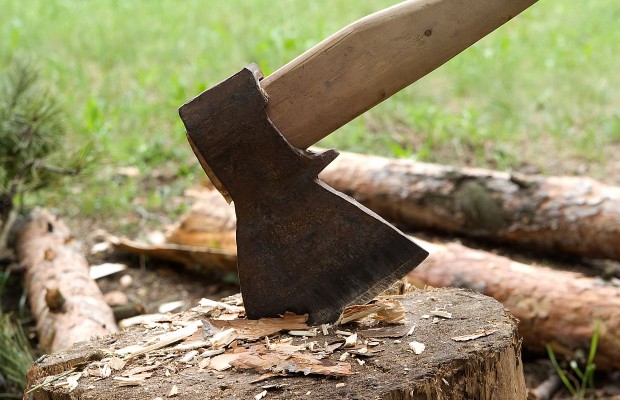
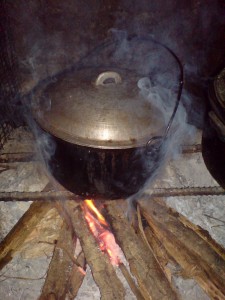
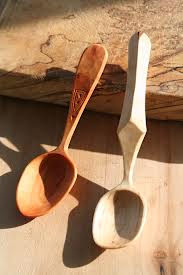
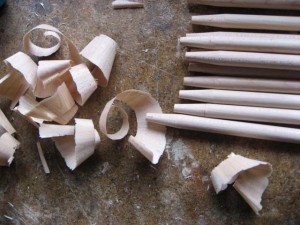

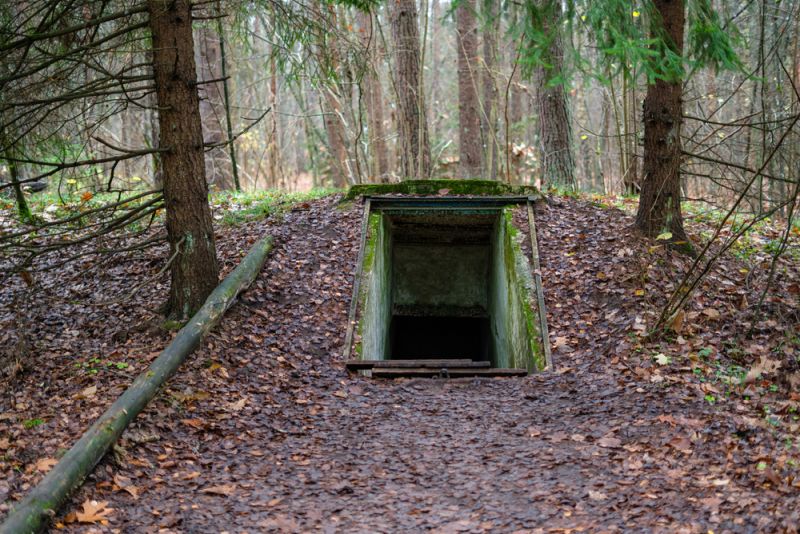
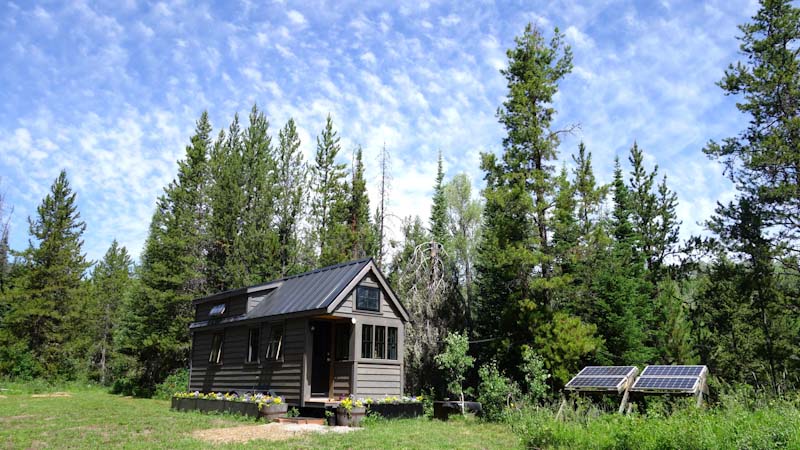



Pingback:Trees You Need for Survival and Their Uses | Patriot Rising | January 6, 2014
|
Linda | January 6, 2014
|
-Keep some softwood around for kindling.
-If you have to take down a fruit tree or some branches, the wood can have some beautiful -colouring and makes for nice utensils/carvings/gifts.
-cottonwood can be real punky wood and difficult to chop, not great for fires, burns fast.
-chopping wood with knots (branches) is difficult, split where it is free of them.
-the key to chopping is letting the axe DROP on to the wood, don’t try to force it down. All you do is direct it. This is also how to ring the bell at the circus, easy peasy.
-birch wood can really gum up your chimney!! So once a day crank up the heat (regardless of the wood you burn) and have a real hot burn for a few minutes to burn the soot out, you’ll hear the pipe and chimney crackling away and a pipe might even go red hot if you have a lot of gunk in it.
-regular pipe/chimney cleaning is a must.
-before adding wood to stove, turn the heat up some for a few minutes and then the smoke won’t billow out as you add the new wood.
-and when buying a cord of wood, 4’x4’x8′ with spaces big enough to let a squirrel run through but not the cat chasing it 😉
…~*~…
Bernie | January 6, 2014
|
Great advice. Stuff the ordinary person would never have theough of in an emergency
linda | January 9, 2014
|
BTW — Rocket mass heaters burn 50-75% less wood.
…~*~…
Brian | January 9, 2014
|
if you have the mind set that the shit is going to hit the proverbial fan than you should have salt packed away . If you should be lucky enough to have a cabin or house to live in and burn wood keep a box of salt next to the wood stove if you have to burn pine type woods that creosote a lot get the fire really cooking and throw a handful of salt in on top of the fire and soon after you’ll hear the creosote come down the chimney it’ll sound like breaking thin glass. if you like to bbq you can also mix salt with water in a spray bottle, when the flames start to flare up spray the mixture over the flames puts out the flare up and also flavors the food
Gregory | January 10, 2014
|
I guess I must start planting one of those for future use. Thanks for the info.
Impressive magazine | January 13, 2014
|
It would be good to have a guide on how to recognize each of the mentioned trees 🙂
Ray | June 13, 2014
|
Hard woods have leaves, soft woods have needles.
BrooklynResident | January 21, 2014
|
Keep a bunch of those cheap Pennies, dated 1983 and later. When you have your fire nice and hot, drop them into it, scattering them on top. These will create a zinc vapor that will cause the creosote buildup in your chimney to drop loose, cleaning it effectively.
This is the same thing the old-timers used to do–they would break the glass liners out of old Mason jars, throwing the zinc lids in, to accomplish this. This makes that small change useful.
If you see a stick sold in the hardware stores to be thrown in your stove to do this, all it is is powdered zinc.
Great Grey | January 23, 2014
|
It is just as important to know what woods don’t work for a job, as it is to know what is preferred or acceptable.
Lee | January 24, 2014
|
This discussion of woods appears to concentrate on woods from east of the Rockies, or perhaps in the Northwest. Southern Californians don’t generally have as many options. For kindling, look for pine snags or old burned-out logs/limbs. They should have lots of pitch and are excellent for starting fires, especially when everything else is wet. Arrows can be made from toyon (California Christmas Berry). The green, limber limbs may have to be straightened a bit, but these were the preferred wood by the local Indians. Eucalyptus, is quite strong, sturdy, although not very limber when dry, but can be used for bows, amongst many other uses. It is difficult, at times to split for firewood, but burns quite well and can be banked with large chunks. I use a sledge and wedge, or maul for splitting large rounds. Try to find log lengths that don’t have too much twist. A good single-bitted splitting axe can be used on smaller pieces with little, or no twist, being careful to keep the handle out of the wood. By that, I mean, keep the axe head from hitting the round farther into the round than the handle enters the axe, or you will probably end up ruining your handle with the round splitting unevenly. Eucalyptus must be well-cured for firewood. California Sycamore is soft, easy to cut, whittle, split and burn (although burns fast and hot). It, too, can be used to make arrows.
Hambone | January 31, 2014
|
Good stuff! New to this page. Chinaberry has properties as a pesticide, as does black walnut. Also, it seems like willow wood have made the list for its feverbark properties. Pecans are our ultimate comfort food, so I would add that. We call Osage Orange “Bois d’arc” in South Louisiana. Wood of the bow is what the Indians told the French.
sralman308 | January 31, 2014
|
If all you had to survive with was a piece of property with a good bit of timber on it! No other resources can be found, wel your best has more to offer than you expected..barter off some lumber, they do their own cutting and you make the money! Don’t over sell it as it is not easily replenished, be wise about how much is harvested from yor lot! Use what you earn wisely, get supplies you have to have to survive, not the wants! Things you may be able to barter with in the future!
Pingback:Tips for Bow Hunting for Survival | Patriot Rising | March 14, 2014
|
Pingback:Off-Grid Survival: How to Cut and Split Wood | SurvivoPedia | April 20, 2014
|
Pingback:Off-Grid Survival: How to Cut and Split Wood | TheSurvivalPlaceBlog | April 23, 2014
|
TootsiE 15 | May 1, 2014
|
Cedar is very well known for repelling all types of insects. This is valuable if
you find yourself in the wild without insect repellent.
LInda | May 1, 2014
|
Cedar can also be very toxic.
One can takes some cedar boughs and boil them up and use the water to spray carpeting/furniture, etc if you have fleas/bugs in your home, but….never spray on animals or have skin contact with the liquid.
…~*~…
Pingback:Tips for Bow Hunting for Survival | May 12, 2014
|
JAMES ALLEN WYATT, JR. | May 18, 2014
|
THANK YOU FOR YOUR SITE AND POST
Pingback:How to Extract Maple Sap from Maple Trees | Survival skills, survival guns, survival guide | October 14, 2014
|
Mike | February 13, 2015
|
Is there a pdf download link available for this article?
Pingback:Trees You Need for Survival and Their Uses - Off Grid Living Network | December 29, 2015
|